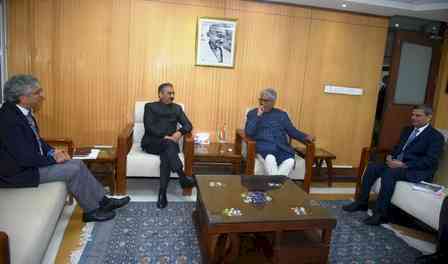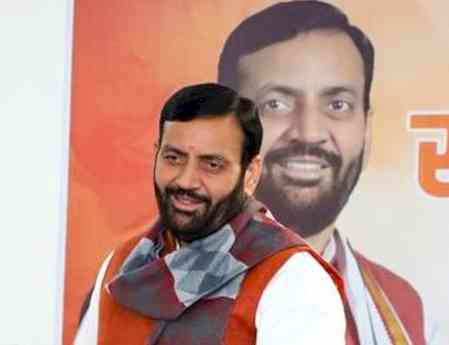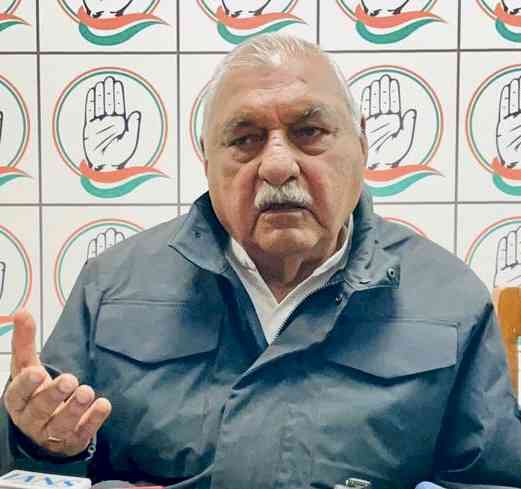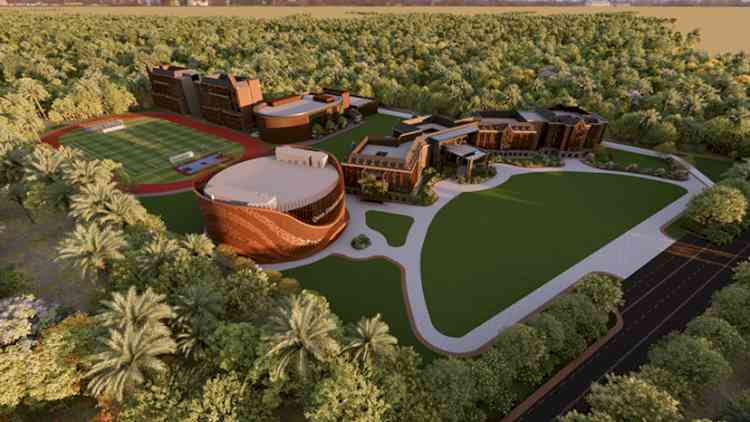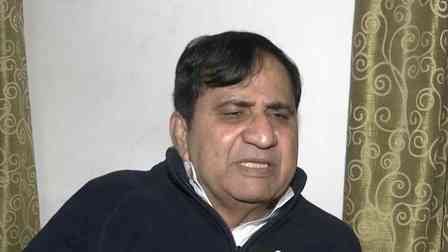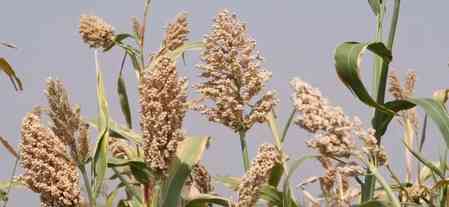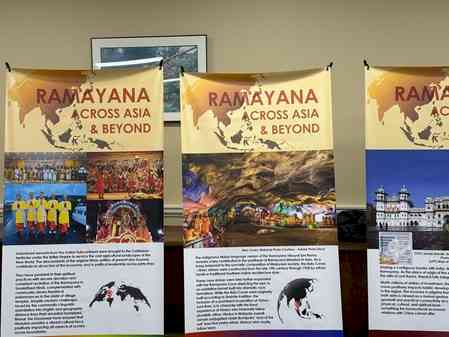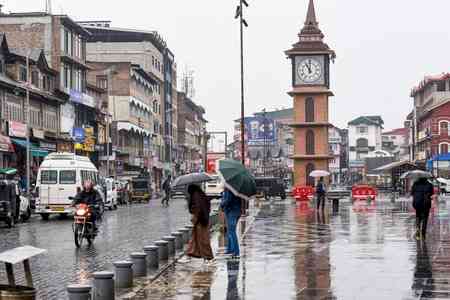Program ‘Varta’ Serves as a Bridge for Smooth Dialogue Between Administration and Media: Deputy Commissioner
Media and Public Participation Play Key Roles in Disaster Management: Superintendent of Police
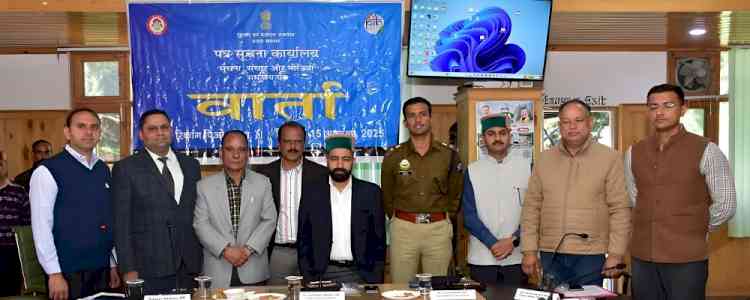
PIB Organises ‘Varta’ in Kinnaur on Themes Including Nasha Mukt Bharat Abhiyan; Tobacco — Leading Cause of Cancer and TB: Chief Medical Officer
Kinnaur/Shimla/Chandigarh, October 15, 2025: Kinnaur Deputy Commissioner Dr. Amit Kumar Sharma has said that district-level outreach initiatives like 'Varta' are vital for ensuring access to credible information in the country. Such programmes not only facilitate the flow of authentic news but also act as a bridge for seamless communication between the administration and the media. Dr. Sharma was speaking as the chief guest at the Varta programme organised in Reckong Peo by the Press Information Bureau (PIB), Shimla and Chandigarh. The event focused on information, communication and media coordination around key themes such as the Nasha Mukt Bharat Abhiyan, Tribal Development, Sanitation, Disaster Management, and Forest governance.
Superintendent of Police Shri Abhishek Sekar attended as the special guest. As part of the government’s Nasha Mukt Bharat Abhiyan, participating youth and media representatives took a pledge to support the campaign.
Earlier, inaugurating the workshop, Sanjeev Sharma, Head of PIB Shimla, highlighted the objectives of the Varta programme, stating that the workshop serves as a bridge between the media and the government. On the occasion, Ahmad Khan, Media and Communication Officer, PIB Chandigarh, elaborated on the functioning of various units of the Ministry of Information and Broadcasting. He also provided insights into the analytical and fact-based studies being conducted by PIB’s Research Unit on diverse subjects. He inspired Journalists to use important, reliable data and information in his articles and news writing from the Backgrounders available on the website of PIB.
Inaugurating the workshop, DC Dr. Amit Kumar Sharma commended PIB’s credibility, noting that he had personally benefited from its authentic information throughout his administrative career.
Addressing the gathering on disaster management, SP Abhishek Sekar urged journalists to refrain from “WhatsApp journalism” and instead adhere to responsible reporting. He cautioned against sensationalizing news, emphasizing that unverified reports can cause confusion and hinder administrative efforts during crises. Such misinformation, he noted, can also adversely impact sectors like tourism. “Media and public participation play a crucial role in disaster management,” he said.
Chief Medical Officer Dr. Rakesh Kumar Negi, speaking on Tobacco-Mukt Yuva Abhiyan 3.0 and the Nasha Mukt Bharat Abhiyan, said tobacco and related products are the leading causes of cancer and tuberculosis. “Nearly 50% of premature deaths in the country are linked to tobacco use,” he stated. He also urged officials and educational institutions to actively spread awareness about the provisions of the COTPA Act.
Addressing the issue of cleanliness, Kalpa SDM Amit Kailtak informed that several initiatives are underway for proper disposal of biomedical and e-waste in the district. He said Kinnaur generates about 700–800 kg of wet waste and 1,000–1,200 kg of dry waste daily. Stressing community involvement, he added, “Swachhata (cleanliness) is a collective responsibility, and everyone must contribute to making it successful.” Highlighting the district’s innovative waste management practices, he said waste segregation has even generated significant revenue for the administration.
Project Officer of Kinnaur, Ghan Shyam Das Sharma, in his address on tribal development programmes, shared details about various government schemes aimed at the welfare of tribal communities. He informed that 9 percent of the State Government’s budget is allocated for tribal development schemes, and 30 percent of this allocation is being utilised in Kinnaur district. Referring to the Union Government’s “Aadi Karmayogi” campaign, he said that earlier, development plans were prepared at the central level, but now, under this initiative, Aadi Saathis and Aadi Sahayogis in villages are jointly formulating local development activities. He described the Aadi Karmayogi campaign as more than an administrative reform — a people’s movement that empowers tribal citizens as co-creators in India’s development journey.
Bhavanagar SDM Narayan Chauhan, in his detailed presentation on the Scheduled Tribes and Other Traditional Forest Dwellers (Recognition of Forest Rights) Act, 2006, explained that local communities have rights over various forest-related activities such as grass cutting, collection of wood, access to water, and the protection and conservation of forest resources. He said that the Forest Rights Act further strengthens these entitlements. Chauhan added that so far, 508 forest rights titles have been issued in Kinnaur, while 203 cases are under review. He noted that the status of forest rights implementation in Kinnaur is better than in other districts of the state. Emphasising the social dimension of forest conservation, he said that forests are a source of livelihood for many people, and therefore, their protection is the shared responsibility of both society and the community.
The event was attended by professors and students from Thakur Sen Negi College. The proceedings were moderated by Assistant Director Sanjeev Sharma, while the vote of thanks was delivered by Media and Communication Officer Ahmad Khan.


 City Air News
City Air News 
